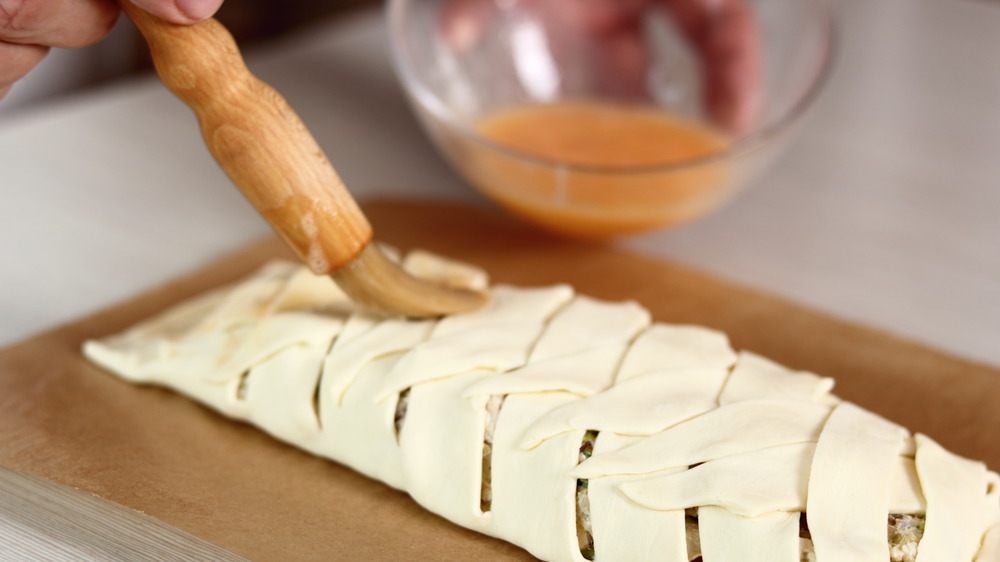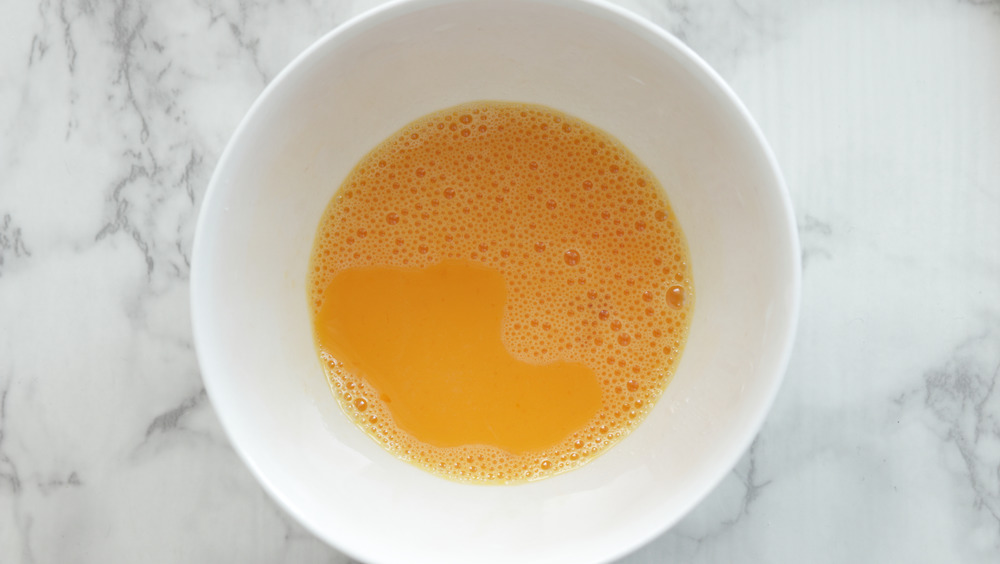What You Didn't Know About Egg Wash
If you've ever baked anything with pastry dough, whether it's a pie crust or homemade rolls, you've likely used an egg wash. Made with just two ingredients (egg and liquid), it serves a few different purposes (via Baker Bettie). Egg wash can be used as a glaze that's brushed on the top of dough before baking to give it that gorgeous golden brown sheen and prevent the dough from looking dull, dry, or cracked. It can be used as an edible adhesive to seal the edges of dough together, like in turnovers (via The Mountain Kitchen). Egg wash also helps toppings like seeds or powdered sugar to stick to the top of your baked goods.
You know egg wash is important, but do you know how to make it? Most of us assume it's as easy as whisking an egg and some water (and maybe a pinch of salt) together (via Fine Cooking). And while that's somewhat true, there's something about the basic egg wash recipe that you probably didn't know.
You don't have to use water for your egg wash
That's right — you may know egg wash as a combination of egg and water but you can actually swap out water for any number of liquids. See, it's the egg yolk that's the most important. The protein browns your dough while the fat gives it that shine, according to All Recipes. The liquid, which is usually water, simply makes it thin enough to be spreadable. All Recipes notes that you can use milk or cream instead of water. They'll yield slightly different results: Milk will make the dough slightly browner and shinier than just water. Adding cream will enhance the color and sheen even more.
Food 52 explains that which liquid you should use may depend on what you're baking. Cream (or half-and-half) is better for "static doughs" like pie crusts that don't expand much while baking. On the other hand, milk is better for "expansive doughs" like bread or rolls that rise and change shape. Food52 also adds that oil can also be substituted for water in egg wash for extra shine.

